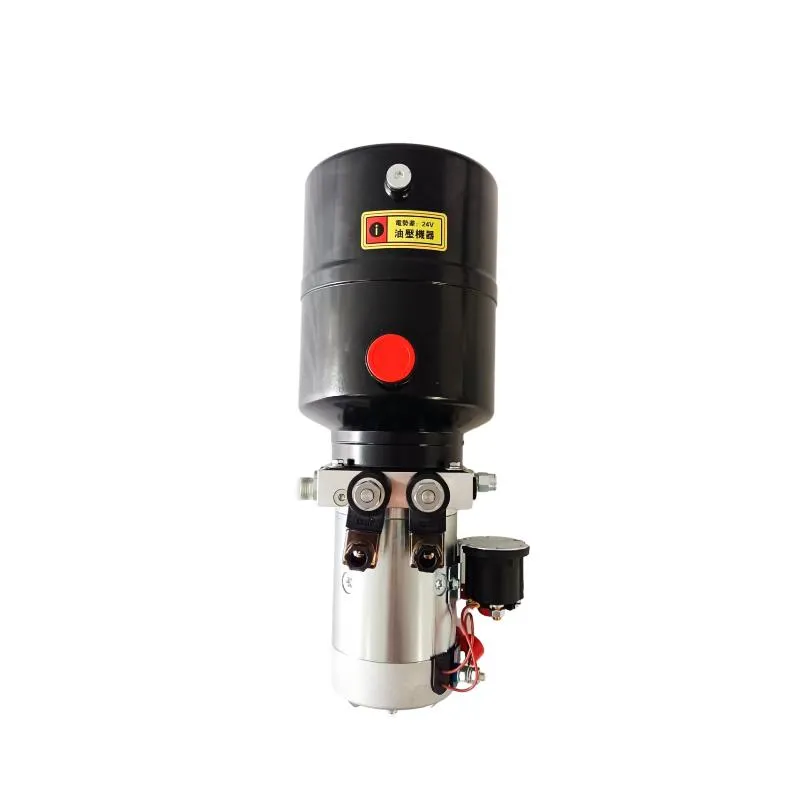Aug . 23, 2024 18:21 Back to list
Hydraulic Cylinder Solutions for Efficient Excavator Performance and Durability
The Importance of Hydraulic Cylinders for Excavators
Excavators are a fundamental piece of machinery in construction, mining, and excavation industries. They possess the remarkable ability to operate in challenging environments and manage heavy workloads with ease. At the heart of an excavator’s functionality is the hydraulic system, particularly the hydraulic cylinders that play a crucial role in translating hydraulic energy into mechanical force.
A hydraulic cylinder is essentially a mechanical actuator that allows for linear motion. It converts hydraulic pressure into force, allowing the excavator to perform various tasks such as digging, lifting, and moving heavy materials. These cylinders are designed to endure extreme conditions, including intense pressure, heavy loads, and exposure to dirt and debris.
The hydraulic cylinder comprises several components the cylinder barrel, piston, rod, and end caps. The cylinder barrel houses the piston and allows fluid to enter and exit through ports in the end caps. When hydraulic fluid flows into one side of the cylinder, it pushes the piston, which in turn moves the rod. This linear movement is what powers the excavator’s arm and bucket, enabling it to perform various operations with precision.
One of the key advantages of hydraulic cylinders in excavators is their exceptional power-to-weight ratio. Hydraulic systems can generate significant force while remaining lightweight, allowing excavators to maneuver easily in tight spaces without sacrificing power. This capability is particularly advantageous on construction sites where space can be limited, and efficiency is paramount.
hydraulic cylinder for excavator product

Moreover, the versatility of hydraulic cylinders makes them suited for a range of tasks. Different attachments can be used with the excavator, such as buckets, hammers, and grapples. Each of these attachments requires specific hydraulic configurations, and the hydraulic cylinder must be capable of adjusting to these demands. As a result, hydraulic cylinders are designed with robust materials and engineering to withstand varying operational conditions and workloads.
The maintenance of hydraulic cylinders is critical to ensuring that excavators operate efficiently and reliably. Regular inspections for leaks, corrosion, and wear can prevent downtime caused by unexpected failures. Additionally, using high-quality hydraulic fluid and adhering to proper operating procedures can extend the lifespan of these components, ultimately saving costs for businesses in the long run.
As technology advances, innovations in hydraulic systems and cylinder design continue to improve performance and durability. Manufacturers are increasingly focusing on creating more efficient hydraulic cylinders that reduce energy consumption and enhance productivity. Features such as advanced sealing technologies and lightweight materials are being integrated, making modern hydraulic cylinders more reliable and effective than ever before.
In summary, hydraulic cylinders are an indispensable part of excavators, contributing significantly to their functionality and efficiency. Their ability to convert hydraulic energy into powerful linear motion allows excavators to excel in a variety of applications, from simple digging to complex material handling. As the industry continues to evolve, the importance of maintaining and improving hydraulic technology will remain a focal point for manufacturers and operators alike. Investing in quality hydraulic cylinders and understanding their maintenance is essential for maximizing the operational capabilities of excavators in today's demanding work environments.
-
Fork Lift Power Units - Hebei Shenghan | Efficiency, Reliability
NewsJul.13,2025
-
1.5-Ton Turbocharged Cylinder-Hebei Shenghan|Hydraulic Solution,Energy Efficiency
NewsJul.13,2025
-
Auto Hoist Power Units-Hebei Shenghan|Efficiency&Industrial Lifting
NewsJul.13,2025
-
Double Acting Power Units-Hebei Shenghan|Hydraulic Solutions,Industrial Efficiency
NewsJul.13,2025
-
1.5 Ton Lifting Cylinder 70/82-40-290-535 - High-Performance Hydraulic Solution | Hebei Shenghan
NewsJul.13,2025
-
Fork Lift Power Units - Hebei Shenghan | Efficiency&Reliability
NewsJul.13,2025
